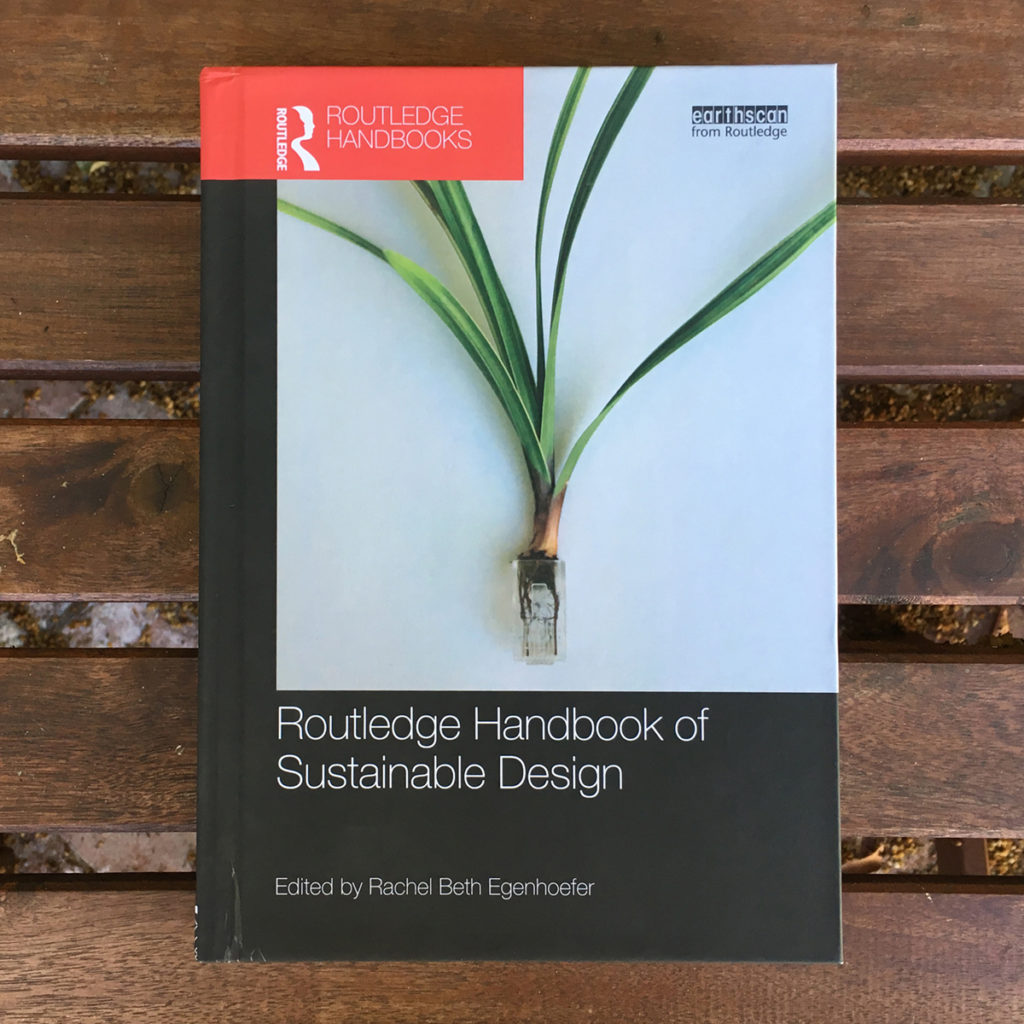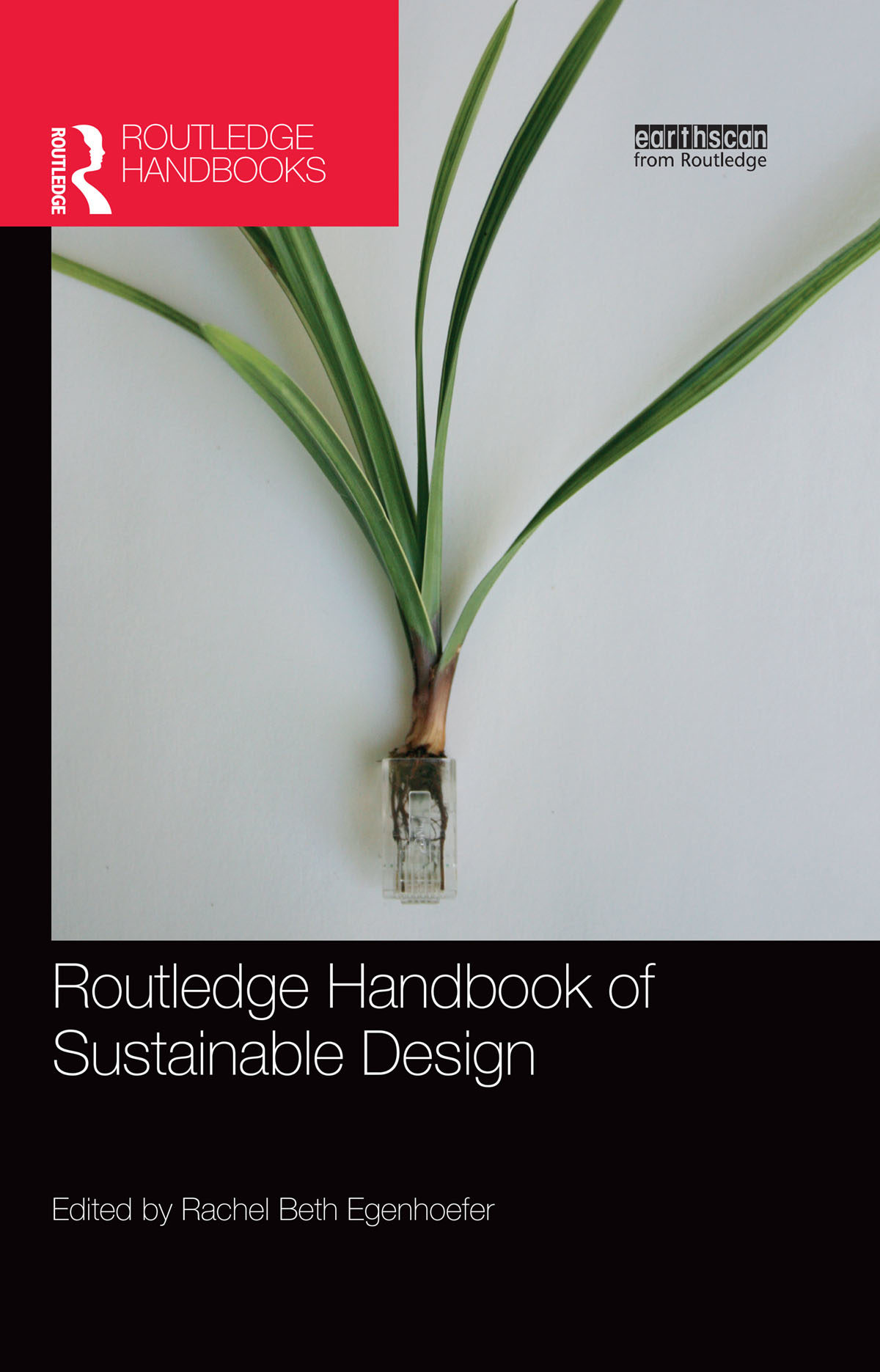Rachel Beth Egenhoefer, Associate Professor, University of San Francisco (Editor)
I have taught courses in, and done research on sustainable design for over ten years. Throughout that time I was dedicated to pushing the notion of sustainable design beyond individual products to wider, systems perspectives where designers would be able to make more impactful changes in the future. While creating products from recycled materials or more “eco” options is a start, to make real change designers need to look at how to change consumption behaviors not just on individual levels, but as communities and a global society. This type of research goes beyond thinking about design as “object” to design as “experience” and requires using systems thinking, ethnography, future casting and other methods of critical inquiry. Having previously published in Routledge’s Sustainability Hub, and after serving as a peer-reviewer for the publisher, they approached me to develop a book on the topic for their handbook series on the topic of sustainable design.
The wicked problems we face in the climate crisis require more solutions than any one person can harness. Collaboration, interdisciplinary, and dialog are urgently needed. Part of my research portfolio is not just creating my own work as an individual researcher, but also working as a thought leader who organizes, curates, and facilitates the work of others working in sustainability to advance the field of sustainable design as a whole. This was my goal in deciding to edit and produce a new handbook.
In 2018, I published the Routledge Handbook of Sustainable Design, making a significant contribution to the field of sustainable design and design pedagogy. Rather than produce an anthology of previously published work or repeat static ideas on sustainability in design, I took the opportunity to push the field to include this more expansive, systems thinking approach to sustainability. My proposal went through a double blind international peer review. As editor of the book, I took special steps to broaden the topics framing, and outline a new way of considering design for sustainability. My work became somewhat curatorial in developing a group of contributors whose collective strength would be more powerful than individual ideas. I sought authors beyond the design community, and those who represented international and diverse voices, coaching each contributor on how to fit their work into the overall narrative I constructed. I made a conscious effort to have more than half of the book be made of up women and people of color – something not seen in traditional academic design publications. Given that designers need to work beyond their own discipline chapters were also included from other disciplines including Environmental Science, Politics, Philosophy, Engineering, and others. The 36 chapters in the book represent an array of powerful voices and ideas, which collectively seek to address how designers can take critically and proactively take on design for sustainable change.

In addressing issues of design for global impact, behavior change, systems and strategy, ethics and values, the Handbook of Sustainable Design presents a unique and powerful design perspective. The handbook has been well received in Europe and in the US, with testimonials from prominent researchers in the field. The book is used by students and scholars in universities around the world including Carnegie Mellon University, Rhode Island School of Design (RISD), Maryland Institute College of Art (MICA), UC Berkeley, Rochester Institute of Technology, University of Michigan, Oberlin College, Loughborough University UK, Cranfield University UK, University of the Arts London, University of Brighton, University of Oslo, Norwegian University of Science and Technology, TU Delft, Royal Melbourne Institute of Technology, Queensland University, Hong Kong Polytechnic University, and of course the University of San Francisco.
Because of my role as editor and producer of this book, I have been asked to present and speak about the book and its concepts at conferences and events, attesting to its impact. This included: organizing and moderating Being Human in the Anthropocene: Understanding the Human in our Impact as part of Jerry Brown’s Global Climate Action Summit, organizing and producing the Compostmodern event series with AIGA SF, speaking on the panel Social Design in Tumultuous Times: Why and How to Publish About it at the AIGA MAKE Design Educators Conference, presenting Sustainability in the Visual Arts, Design, and Creative Fields at the national AASHE (Association for the Advancement of Sustainability in Higher Education) conference.
See also:
Rachel Beth Egenhoefer is a design professor, artist and writer, whose work integrates technology, craft, and design. Her current focus is on sustainability and systems thinking as related to behavior change. Egenhoefer is currently the Chair of the Department of Art + Architecture, Program Director of the Design Program, and an Associate Professor in Design at the University of San Francisco, where she has taught since 2009. Egenhoefer is the editor of the Routledge Handbook of Sustainable Design and a contributor to Routledge’s Sustainability Hub Believing in the power of education to move sustainable action forward, she has been a part of ASHEE’s Sustainability Across the Curriculum Program, and presented her work on sustainable design education at the AIGA Design Educators Forum, PALS (Partnership for Academic Leadership), the School of Visual Arts in New York, San Francisco Art Institute, and others.
Recipient of recognition in the Design Incubation Communication Design Awards 2019.
